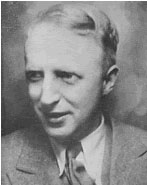Edman describes naturalism in philosophy as that point view that refuses to go beyond the world of phenomena. It remains within the circle of experienced objects and events and their discoverable relations. Courage is required to renounce any special role for human purposes in the universe. [ed.]
------------
Natural human needs make most people common sense philosophers of a real material world no matter what their visionaries may dream. Democritus’ concept of a universe of atoms whose various combinations make up everything that exists was an intellectual leap that made the world intelligible. The previous world of chance, supernatural forces and whimsical gods was replaced by a world of constant parts and laws. The universe was no longer the handiwork of friendly or alien powers. In a stable orderly cosmos one could make dependable predictions. Given causes could plausibly be expected to have given effects. This world-view is called mechanism. It is simply a firm belief in causality– all effects have discoverable causes, all causes discoverable or calculable effects.
The Newtonian world-view pictured a mechanical universe. Nature was conceived as a great machine where blind mechanical regularity ruled. It left out precisely those qualities which in human experience are most precious. It rendered fantastic any alleged meaning of the universe. Moral values were a farce in an unmoral cosmic machine.
The quantum physics of the twentieth century changed that picture. But this does not mean that the naturalistic point of view has broken down. Naturalism as a philosophy postulates that there is a something substantial with which we must deal. It holds further, there are no breaks in the order of events; everything that happens has consequences, and to learn to discern those causes and consequences is to understand nature.
To those individuals brought up on the warm comfort of a universe made for humans the naturalistic world-view seems cold. Sensitive spirits have been deeply hurt by the fact that all that constitutes human value and dignity finds no support or status in the universe. But the division between man and nature is made more absolute than it actually is. All man’s achievements are in a large sense nature’s too. The sadness some feel in the mechanistic picture of the world is a romantic impertinence.
Naturalism transcends mechanical physics. It is simply a faith in the unity of nature, a faith in causality. It is an expression of a faith that all humans work with, and must always have had or human life would long ago come to an end. Whatever they say theoretically, men do recognize a something not themselves with which they must reckon.
The deep despair that arose when man and his values seemed to have no place in nature is an invented sadness based on artificial dividing of what is in fact unified… The notion that man’s highest ideals are somehow pathetic oppositions to nature neglects the important fact that those ideals are themselves generated in the imagination and mind of nature’s creation. The spiritual, moral and even the religious interests of man are quite as much a part and product of nature as are the brutalities of the animal kingdom. Truth, Goodness and Beauty are fruits of this world.
Certainly all that is or may be is from nature, the universal mother. But in the procedure of thinking and imagination, man thinks of goals not realized, ends not attained, imagines a world better than he has ever known and lavishes his love upon that world of his own imagings. The devotion to what men at their best may be, to what at their best they make of the world, constitutes a love that is nothing less than religious.


